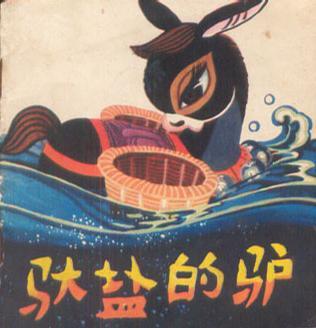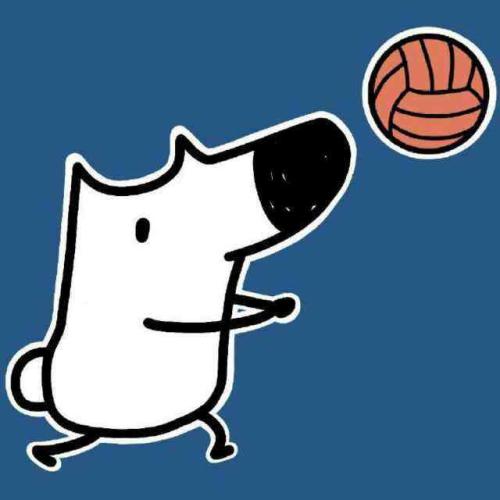 圣贤
圣贤英语三年级下册(外研版)Module8
关注“齐鲁校园在线” 关注山东教育课文翻译 Unit 1 It's on your desk. 它在你的书桌上面。①Listen, point and say.听一听,指一指,说一说。Where is my toy?我的玩具在哪里?It's in the bag.它在包里。Where is the bag?包在哪里?Oh! It's under the cat.哦!它在猫下面。②Listen,point and find"in, on, behind, under”.听一听,指一指并我出”in, on, behind, under”。Daming: Oh, what's this?大明:哦,这是什么?Daming: A present for you. It's in the box.大明:一份给你的礼物。它在盒子里。Daming: It's on your desk.大明:它在你的书桌上面。Daming: It's behind the door.大明:它在门后面。Daming: It's under your chair.大明:它在你的椅子下面。Daming: It's in your bedroom.大明:它在你的卧室里。Children: Happy birthday to you!孩子们:祝你生日快乐!Daming: Wow! Ha ha…大明:哇!哈哈……Unit 2 Daming flies a kite in the park. 大明在公园里放风筝。①Listen, point and say.听一听,指一指,说一说。The dog is in the lake.狗在湖里。The cat is under the tree.猫在树下面。The monkey is behind the tree.猴子在树后面。②Listen andsay. 听一听,说一说。In spring, Daming flies a kite in the park.春天,大明在公园里放风筝。In summer,he swims in the lake.夏天,他在湖里游泳。In autumn, he goes fishing under the tree.秋天,他去树下钓鱼。In winter, he walks in the snow.冬天,他在雪地里行走。单词toy 玩具under 在......下面for 为,给,对box 盒子behind 在......后面bedroom 卧室flies (fly的第三人称单数形式)放(风筝)park 公园lake 湖tree 树fishing 捕鱼,钓鱼go fishing 去钓鱼walk 行走,步行 课后作业一、 选出不同类的一项。() 1. A. desk B. toy C. chair() 2.A. behind B. bedroom C. under() 3.A. park B. lake C. play() 4.A. rain B. under C. snow() 5.A. fly B. walk C. tree二、单项选择。() 1. — ________ —It’s in the bag.A. What’s this? B. Where is my English book?C. Who is that?() 2. —Happy birthday to you! —________A. Happy birthday to you! B. Goodbye!C. Thank you!() 3. —________ —It’s a pen.A. Where is my pen?B. What's that?C. Where is the pencil?() 4. In winter, he walks ________ the snow.A. inB. underC. at() 5. The pen ________ on the desk.A. amB. isC. are三、给下列句子找出相应的答语。() 1. Where is my toy?() 2. What’s this?() 3. Do you play football in the afternoon?() 4. What do you do in spring?() 5. A present for you!A. It’s a pen.B. No, I don’t.C. Thank you.D. It’s in the box.E. We fly kites in spring.四、情景交际。() 1. 你想告诉朋友盒子在包下,你可以说:A. The box is under the bag. B. The box is on the bag. C. The box is in the bag.() 2. 好朋友在你生日时说“Happy birthday to you! ”,你应该这样说:A. Here you are. B. Happy birthday to you,too. C. Thank you.() 3. 你想告诉朋友那只猴子在树上,你应该这样说 :A. The monkey is under the tree. B. The monkey is in the tree. C. Where is the monkey?() 4. 你想表达“我的书在书桌后面。”时,你可以说:A. My book is on the desk. B. My book is under the desk. C. My book is behind the desk.() 5. 当你的玩具不见了时,你可以这样问妈妈:A. Where is my toy?B. Where is my book?C. Where’s the boy? 先思考再看答案一、1. B2. B3. C4. B5. C二、1. B2. C3. B 4. A5. B三、1. D2. A3. B4. E5. C四、1 . A2. C3. B4. C5. A来源于网络◆ ◆ ◆ ◆ ◆
 第三代
第三代英语五年级下册(外研版)Module8
关注“齐鲁校园在线” 关注山东教育06:10课文翻译 Unit 1 Will you help me? 你会帮助我吗?①Look, listen and say. 看一看,听一听,说一说。Tomorrow is my cat's birthday.明天是我的猫的生日。I'll make a paper fish for her.我将为她做一个纸鱼。It will be a great present.它将会是一份很棒的礼物②Listen,read and act out.听一听,读一读,并表演一下。Daming: I'm going to visit my cousinin New York. His name is Simon. What present can I take?大明: 我将要拜访我在纽约的表哥。他的名宇是西蒙。我能带什么礼物?Fangfang: What about a toy panda?芳芳:一个玩具熊描怎么样?Daming: I think he's got a toy panda. His mother and grandma are Chinese.大明:我认为他已经有一个玩具熊猫了。他妈妈和 (外)祖母是中国人。Fangfang: What about a kite?芳芳:一只风等怎么样?Daming: Good idea! I'll make a kite.大明:好主意!我将制作一只风筝!Fangfang: But will it be windy in NewYork?芳芳:但是纽约将会有风吗?Daming: I think so.大明:我认为是这样的。Daming: Will you help me?大明:你会帮助我吗?Fangfang: Of course I will.芳芳:我当然会。Fangfang: Daming, your cousin will love this kite. It's a Chinese dragon.芳芳:大明,你表哥将会喜爱这只风筝。它是一条中国龙。Daming: Thank you for your help. It will be a great present.大明:谢谢你的帮助。它将会是一份很棒的礼物。Fangfang: You can write the Chinese word for“dragon”on it.芳芳:你可以在它上面写汉字“龙”Daming: That's a great idea!大明:那是一个非常好的主意!Unit 2 I made a kite.我做了一只风筝。①Listen andchant.听一听,唱一唱。I drew a dragon.我画了一条龙。I cut the paper.我剪了纸。I made kite for my sister. 我做了一只风筝为我妹妹。②Listen andread. 听一听,读一读。I made a kite.我做了一只风筝。I drew a dragon on a piece of yellow paper.我在一张黄色的纸上画了一条龙。I painted it.我给它涂色。I cut the paper.我剪这张纸。I put sticks on it.我把小木条放在它上面。I tied strings to it. 我把绳子系在它上面。Then I could fly my kite.然后我能够放飞我的风筝。单词paper 纸Chinese 中国人的so 如此,这样word 词,字derw (draw的过去式)画cut (cut的过去式)剪,切,割piece 涨,片,块paint (用颜料)绘画,着色put (put的过去式)放,安放stick 小木棍,小木条tied (tie的过去式)扎上,系上*string 线,绳子课后作业先思考再看答案来源于网络◆ ◆ ◆ ◆ ◆
 黑木
黑木外研版!五年级下册英语全套单元测试卷,打印练习,有答案
外研版!五年级下册英语全套单元测试卷,打印练习,有答案英语作文三门主科之一,从小学就开始学习,但不少孩子和家长并没有意识到英语的重要性也不重视,就像有的孩子在上英语课时肯定没有认真上课,完全是在开小差。尽管,小学阶段的英语比较简单,但若连上课都不认真,那不仅期中期末考试成绩会受影响,升入初中后也会跟不上教学进度。所以,老师提醒家长们,若你的孩子在学习英语后,一定得注意孩子对于英语的态度,家长得去引导孩子学习英语,得培养孩子对于英语的兴趣。关于小学英语这里我也不再多说,下面分享外研版五年级下册英语的全套单元测试卷,其中也包括期中期末卷,有答案。完整word文档领取方式请到文末查看完整word文档领取步骤:点击文章标题下的头像进入主页,找到私信,发送666即可!
.jpg) 朱修
朱修外研版:8年级下册英语重点归纳,可打印,期末、暑假用得着
8年级下册英语难度明显加大,这也是许多同学从8年级下册英语成绩出现下滑现象的根本原因,主要是知识点增多,同学们背诵的时候容易搞混淆,一旦记错了就会直接影响到单选、完形这两类题型。所以,老师建议同学们在学习的时候,要多去复习,温故而知新,可以为师矣。只要是去复习了,那么肯定会有收获的,这对于9年级的学习也是很有帮助的。所以,同学们可以尽可能的暑假充分的利用起来,也算是为中考做准备,多复习、掌握一点,到中考的时候复习任务就相对少一点,就能空出时间去复习其他科目了。那么,老师下面给同学们整理了一篇8年级下册英语外研版的重点归纳,同学们不妨可以打印下来,迟早都会用到。文末附有电子版资料下载方法今天就分享到这里,喜欢的朋友可以关注我,我会每天与你准时相约。由于篇幅所限,本文只能发布部分内容。需要详细资料请点击我的头像,关注我,私信发送“资料“即可。还可以获得更多的学习资料哦。
 柏拉图
柏拉图 带灯
带灯小学英语跟读软件哪个好?教师亲测:这3款最佳!
很多家长说自己不懂英语,或者基础知识都忘得差不多了,不知道怎么教孩子。如果是这样的话,其实是可以给孩子准备一些学习工具的。但是,如果你还在给孩子收集磁带、光盘、你就out了,现在手机端有很多优质便利的英语学习app,能让孩子实现随时随地学英语。那有的家长可能又会问:小学英语跟读软件那么多,哪个最好用呢?今天老师就给大家分享3款我亲自测试过的小学英语跟读软件,实用价值比较高。还在纠结给孩子选什么app的家长,可以参考一下。第一款:小飞机英语推荐理由:不仅可以记单词,还有课文跟读功能来练习口语,而且没有什么乱七八糟的小广告。最重要的是,这是一个完全免费的软件。所以个人觉得还是值得一试的。第二款:纳米盒推荐理由:这款软件最大的特点,应该就是版本特别全。基本上,全国小学生在这里都能找到学校正在用的那本教材。包括:人教版(新起点、PEP、精通版)、外研版、北师大版、沪教版(即上海牛津版)、苏教版、译林版、教科版、培生朗文版(Longman Welcome to English)、冀教版、湘少版、清华大学版、辽宁师大版……点击空白处,可以调出各项功能,朗读功能包括点读、连读和复读3个模式。教材有收费的,也有免费的。以五年级下为例。人教版PEP需付费,25元/半年,即一个学期,其他教材也基本是这个价格;上海牛津版是免费的。家长可以视情况而定。第三:PEP小学英语(好爸爸)推荐理由:这款软件估计是个人制作,上面写着好爸爸的标志。它的功能相对比较简单,先选择年级,再满足课文跟读、翻译等功能。值得一提的是,它的播放语速是可以自由操控的,这一点就做得非常人性化。如果这真的是个“好爸爸”制作的,那他肯定是位好爸爸~老师还尝试了一些其它的app,但要不就是收费略高,要么就是广告满天飞,再或者就是操作特别复杂。所以就不一一罗列了。这里还可以提一句“中小学英语同步听写”这个app,前些年还是挺受学生和家长的欢迎的,但是后来这个软件的bug特别多,例如进不去软件、下载不了课件等问题,现在基本上已经无法使用了。所以,小学英语跟读软件,我只推荐以上这3款。聊完了小学英语跟读软件,我们再来聊一聊小学英语同步训练册。毕竟,要想让孩子学好小学英语,打好基础,光靠这些app肯定是不够的。还需要做教学同步的练习册。但市面上小学同步教辅那么多,到底选哪本对孩子才是最有帮助的呢?老师这里给大家推荐一本尖刀侠《名校学霸尖刀卷》,同样是我们班孩子正在使用,且效果不错的辅导书。它会帮孩子汇总所有的知识点,并标注出孩子需要掌握到什么程度,让孩子时刻都能清楚自己的学习目标;里面的试题也都是和前面的知识点相对应的,且都是名校真题,真正让孩子实现“点对点”练习。等孩子做完题以后,家长可以对照题号,找出孩子做错的题的对应知识点(这套卷子里面的每个题都会标记对应的知识点),再给孩子做针对讲解!(里面的讲解也超级详细,完全符合孩子的思维方式,孩子一听就能懂。)这样,就再也不用担心孩子学不好英语啦。总结:无论是老师上面的推荐的英语学习app,还是后面提到的同步训练册,都是我亲自测试过,觉得确实是对孩子有帮助的,各位家长可以放心选择。
 寒风镇
寒风镇外研版(三起)小学英语五年级下册知识点归纳总结
Mole 1一、音标ai —— [e] —— rain, main, waital —— [:] —— walk, talk, tallar —— [e] —— farmer, far, park, partyay —— [e] —— play, may, day, sayau —— [:] —— autumn, August, authorar —— [] —— warm, quarter, war二、单词still 还,仍然 programme (电视或广播)节目 lady 女士,夫人 life 生活 different 不同的 ago 以前 interviewer 采访者 enough 足够的 television 电视机 grandchildren (grandchild的复数形式)(外)孙子;(外)孙女 change 改变,变化 night 夜晚,夜间 work 工作;劳动;干活儿 field 田地 fire 火,炉火 or (用于否定句中)也不,也没 radio 收音机 telephone 电话 couldn't = could not 不能 write 写 hope 希望三、固定搭配live in 住在...... watch TV 看电视 a small village 一个小村庄 talk about 谈论 in the fields 在田地里 last night 昨天晚上 every day 每天 enough food 足够的食物 lots of 许多 a television programme 一个电视节目四、句子1. There are two beautiful cats on the chair. 有两只漂亮的小猫在椅子上。2. Life was very different in China many years ago. 在许多年前中国的生活对于现在有着很大的区别。3. We lived in a small house. We didn’t have enough food. There weren’t many buses. There weren’t any televisions. 我们住在小房子里。我们吃不饱。没有许多小汽车,也没有电视机。4. China is changing. 中国正在改变。5. He has got strong legs. He can jump really far. 他有强壮的腿,他能跳得很远。6. She didn’t have a television or a radio. 她没有电视机和收音机。五、句型结构① 描述某地从前有/没有某物There was / were (not) ...eg: There was a wide bridge over the lake. 湖上之前有座很宽的桥。There weren’t many tall buildings in the city. 城市里之前没有许多高大的建筑。② 描述某地现在有/没有某物There is / are (not) ...eg: There are many cars and tall buildings in the city. 城市里现在有许多小汽车和高楼。There aren’t many birds here. 这儿没有许多鸟了。③ 描述某人过去没有某物主语 + didn't have + 其他.eg: My mother didn’t have any grey hairs. 我妈妈以前没有白头发。My brother didn’t have a toy train. 我打到以前没有玩具小火车。Mole 2一、音标aw —— [:] —— paw, saw, draw, lawair —— [e] —— hair, pair, chairass —— [ɑs] —— class, pass二、单词learnt (learn的过去式)学习 taught (teach的过去式)教,讲授 language 语言 wrote (write的过去式)写 dancer 舞蹈演员 foreign 外国的 studied (study的过去式)学习 hard 努力地三、固定搭配foreign languages 外语 learn English 学习英语 study hard 努力学习 teach Chinese 教语文 四、句子1. — Did your grandma learn any foreign languages? 你奶奶学习一些外语了吗?— Yes, she learnt English. 是的,她学了英语。2. He’s learning English now. 他正在学英语。3. — Did she make a cake yesterday? 昨天她做了蛋糕吗?— No, she didn’t. 不,她没有。4. Twenty years ago, Mr Li was a teacher. He taught Chinese. 二十年前,李先生是一名老师。他教语文。5. Five years ago, he walked to school. Now he goes to school by school bus. 五年前,他步行去学校。现在他坐公共汽车上学。6. — What did he do? 他做了什么?— He drank some water. 他喝了一些水。五、句型结构① 描述某人做过某事主语 + 动词过去式 + 其他.eg: He played basketball. 他打了篮球。He sang songs last night. 他昨晚唱歌了。② 描述某人正在做某事主语 + is / am /are + 动词-ing + 其他.eg: I am listening to music. 我正在听音乐。She is cleaning the room. 她正在打扫房间。They are playing games. 他们正在玩游戏。③ 描述某人之前的工作,以及现在的状态主语 + was / were + 职业名称.Now 主语 + is / am / are + 职业名称. / Now 主语 + 动词原形(第三人称单数形式)+ 其他.eg: I was a student ten years ago. Now I am a teacher. 十年前我是一名学生。现在我是老师。Kate was a driver two years ago. Now she doesn’t drive a car. 卡特两年前是一名司机。现在她不开车了。Mole 3一、音标ea —— [i] —— teacher, meat, real, beatee —— [i] —— meet, see, bee, treeea —— [e] —— head, bread, readyear —— [] —— hear, hear, nearear —— [e] —— bear, pear, wearere —— [e] —— where, there, hereeir —— [e] —— their, heir(继承人)二、单词hamburger 汉堡包 English 英国(式)的 breakfast 早餐,早饭 lunch 午餐,午饭 sandwich 三明治 fish and chips 炸鱼加炸薯条 traditional 传统的 dish 食品;菜肴 very much 很,非常 gave (give的过去式)给 tonight 今夜,今晚 三、句子1. — What did she have? 她吃了什么?— She had eggs and sausages. 她吃了鸡蛋和香肠。2. — What did she have for lunch? 她午餐吃了什么?— She had sandwiches. 她吃了三明治。3. — Does Lingling like English food? 玲玲喜欢英式食物吗?— Yes, she does. She says it’s delicious. 是的,喜欢。她说食物很美味。4. Today Sam ate four hamburgers at school. 今天在学校山姆吃了四个汉堡包。5. Tonight Mum is going to cook Chinese food for us. 今晚妈妈将要为我们做中餐。四、句型结构① 询问某人三餐吃了什么— What did + 主语 + have for + breakfast / lunch / dinner?— 主语 + had + 食物名称.eg: — What did Jack have for breakfast? 杰克早餐吃了什么?— He had milk and bread. 他喝了牛奶,吃了面包。— What did you have for lunch? 你午餐吃了什么?— I had two apples and beef noodles. 我吃了两个苹果还有牛肉面。五、单词解析miss① 当首字母大写 Miss 一般用来称呼未婚女子eg: Miss Yang is my English teacher. 杨老师是我的英语老师。② miss 有“思念,想念”的意思eg: I miss you so much. 我好想你。③ 表示“错过”的意思eg: I missed the last bus. 我错过了末班车。Mole 4一、音标ie —— [a] —— pie, lie, dieigh —— [a] —— high, night, bright, lightir —— [] —— girl, bird, dirty, skirt二、单词library 图书馆 student 学生 sent (send的过去式)发送,寄 CD 激光唱片,光盘 idea 主意,想法put 放,安放 shelf 架子 heavy 重的,沉的 dictionary 词典;字典 card 卡片 library card 图书卡,借书证 ask 邀请 wrong 错误的 dear 哎呀 information 信息 e-book 电子书 project 项目 guide 介绍,指南,手册 film 电影 as well 又,还,也 way 方法,方式 on 关于 topic 话题三、固定搭配a home library 一个家庭图书馆 good idea 好主意 library card 图书卡,借书证 science project 科学项目 on this shelf 在这个架子上 get information 获取信息 on this topic 关于这个话题 四、句子1. Let’s make a home library. 我们做一个家庭图书馆吧。2. A friend sent these books and CDs to us. 一个朋友送了这些书和光盘给我们。3. These are all books about science. 这些书全是关于科学的。4. These are the library cards for our friends. 这是给朋友们的图书馆卡片。5. — Where are the books about sports? 关于体育的书在哪?— They are on the Shelf C. 他们在C架子上。6. The books on Shelf B are about computers. B架子上的书是关于计算机的。五、句型结构① 提出建议Let’s + 动词原形 + 其他.eg: Let’s go home. 我们回家吧。Let’s clean our room. 我们打扫房间吧。② 介绍某些物品的类别These are ... about ...eg: These are books about history. 这些书是关于历史的。These cards about words. 这些卡片是关于单词的。③ 某人能从某处得到信息主语 + can get information from...eg: We can get information from television. 我们能从电视上得到信息。We can get information from the internet. 我们能从网上获取信息。Mole 5一、音标oa —— [] —— coat, goat, boatoy —— [] —— toy, boy, joyoo —— [u] —— school, fool, cool, noonoo —— [] —— look, book, good二、单词light 轻的 hard 困难的,费力的 broken 坏的,破的 department store 百货商店 pocket 口袋,兜 umbrella 雨伞 sales assistant 售货员,营业员 wheel 轮子 easy 容易的,不费力的 take 选择要;选择购买 too 太,过于 try 试,尝试 lovely 美丽的,可爱的;令人愉快的三、句子1. This black bag is nice. It’s big! 这个黑色的包很好,很大!2. Look at this blue one. It’s big and light. 看这个蓝色的,又大又轻。3. It’s too big for you. 对你来讲太大了。4. It has got a panda on it. 在它上面有个熊猫。5. You can take it to China. 你能带它回中国。四、固定搭配too + 形容词 + for sb 对某人来讲太......eg: It’s too hard for me. 对我来说太难了。It’s too small for me. 对我来说太小了。五、句型结构描述某物特征This ... is + 描述物品的形容词.It’s + 描述物品的形容词.eg: This dress is long. 这条裙子是长的。It’s nice. 他是漂亮的。Mole 6一、音标or —— [] —— morning, for, horseoor —— [] —— door, floor, poorour —— [:] —— your, four, fourteenou —— [a] —— about, house, outow —— [a] —— cow, how, blow, town, brownour —— [] —— colourur —— [] —— surprise, Saturday二、单词moon 月亮,月球 get 到达 west 西,西部,西方;向西方 parent 母亲;父亲;家长 stay 停留 July 七月 south 南,南部,南方;向南方 remember 记得 June 六月 east 东,东部,东方,向东方 best 最好的 north 北,北部,北方;向北方 rest 休息 have a rest 休息一下 rode (ride的过去式)骑 三、固定搭配get there到达那里 every year每年 ride a horse骑马 have a lovely time玩得很开心 some interesting photos一些有趣的照片 in the west / south of China在中国的西/南部四、句子1. — Where did you go for the holidays? 你假期去了哪儿?— I went to the moon. 我去了月球。2. Lingling has got some interesting photos. 玲玲有一些有趣的照片。3. Xinjiang is in the west of China. 新疆在中国的西部。4. Hainan is in the south of China. 海南在中国的南部。5. — Did you go with your parents?你和你父母一起去的吗?— Yes, I did. 是的。6. She visited the Tianchi Lake. It was very beautiful. 她参观了天池湖,天池湖非常漂亮。7. I went to Hainan in July and I bought a hat. 我七月去了海南,还买了一顶帽子。五、句型结构① 描述自己曾经去过某地I want to + 地点 + 过去的时间.eg: I went to Beijing last year. 去年我去了北京。② 描述某地位于中国的东/南/西/北方向。地点 + is in the east / south / west / north + of China.eg: Jilin is in the north of China. 吉林在中国的北部。Shanghai is the south of the China. 上海在中国的南部。Mole 7一、音标ch —— [t] —— children, child, churchtch —— [t] —— watch, kitchen, catchck —— [k] —— black, clock, chick, back二、单词evening 傍晚,晚上 late 近日暮的;近深夜的;时间不早的 worker 工人 factory 制造厂;工厂 early 早的 taxi 出租车,计程车 quarter 一刻钟 to (距整点)差...... worry 焦虑,担心 三、固定搭配go to work 去上班 be late 迟到 be home 到家 四、句子1. My father goes to work at eight o’clock every morning. 我爸爸每天早上八点去上班。2. — Will you take us to the park tomorrow morning? 你明天早上会带我们去公园吗?— Yes. I’ll take you there at half past seven. 是的。我在七点半的时候会带你到那。3. — What does he do? 他是做什么的?— He’s a policeman. 他是一名警察。4. My father goes to work at six o’clock every morning. He’s a worker in a factory. 我爸爸每天早上六点去上班。他是工厂的一名工人。5. It’s half past eight now. I’m late and I’m tired. 现在八点半了。我要迟到了。我好累啊。6. — What times does you mum get up? 你妈妈什么时候起床?— She gets up at seven o’clock. 她七点起床。五、句型结构① 描述某人几点去上班/学主语 + go / goes to work / school at + 时间.eg: I go to school at eight o’clock. 我八点去上学。My father goes to work at seven o’clock. 我爸爸七点去上班。② 描述自己何时将会到家。I’ll be home at + 时间.eg: I’ll be home at five o’clock. 我将会在五点到家。Mole 8一、音标ll —— [l] —— tell, will, illng —— [] —— along, sing, thingng —— [ɡ] —— English, angry, languagenk —— [k] —— think, drink, thank二、单词paper 纸 Chinese 中国人的 so 如此,这样 word 词,字 drew (draw的过去式)画 cut (cut的过去式)剪,切,割 piece 张,片,块 paint (用颜料)绘画,着色 put (put的过去式)放,安放 stick 小木棍,小木条 tied (tie的过去式)扎上,系上 string 线,绳子三、固定搭配a toy panda 一只玩具熊猫 a Chinese dragon 一条中国龙 a great present 一份很棒的礼物 a piece of yellow paper 一张黄色的纸 visit my cousin 拜访我的表哥 make a kite 制作风筝 draw a dragon 画一条龙 cut the paper 剪这张纸 fly my kite 放我的风筝四、句子1. Tomorrow is my cat’s birthday. 明天是我的猫的生日。2. I’ll make a paper fish for her. 我将会做一条纸做的鱼给她。3. I’m going to visit my cousin in New York. 我将要去拜访在纽约的表哥去。4. — Will you help me? 你会帮我吗?— Of course I will. 当然会了。5. I made a kite. 我做了一个风筝。6. I drew a dragon on a piece of yellow paper. 我在一张黄纸上画了一条龙。7. — What will you do tomorrow? 你明天将要去干什么?— I’ll go swimming tomorrow. 我明天将要去游泳。五、句型结构① 描述某人将要做某事主语 + will + 动词原形 + 其他.eg:I will buy a pink dress for my sister. 我将要去买一条粉色的连衣裙给我妹妹。I will go to school by bus. 我将要坐公共汽车去上学。② 询问对方是否将要做某事— Will you + 动词原形 + 其他?— Yes, I will. / No, I won’t.eg:— Will you go to the zoo tomorrow? 你明天将要去动物园吗?— Yes, I will. 是的,我要去。— Will you sweep the floor? 你将要去扫地吗?— No, I won’t. 不,我不去。Mole 9一、音标qu —— [kw] —— queen, quite, quietsh —— [] —— shine, she, shipth —— [] —— this, that, theseth —— [θ] —— tooth, think, thing二、单词laugh 笑 wore (wear的过去式)穿 letter 信,书信 theatre 剧院 women (woman的复数形式)女性,妇女 actor 演员 told (tell的过去式)口述,讲(故事等) joke 笑话 after 在......后 show (尤指剧院的)演出,表演 restaurant 饭店,餐馆 ready 准备好的 borrow 借入,借来 read (read的过去式)读 at all 一点都 in 在(将来一段时间)之后 another 另一个 history 历史 ask 问,询问 question 问题 forget 忘,忘记 bring 带来,拿来 soon 不久,很快 三、固定搭配play football 踢足球 tell jokes 讲笑话 laugh a lot 开怀大笑 read a book 读书 be ready for 为......做好准备 borrow a bike 借一辆自行车 a children’s theatre 一家儿童剧院 Chinese history 中国历史 Chinese songs 中国歌曲 last week 上周 after the show 演出之后 四、句子1. Tomorrow is my cat’s birthday. 明天是我的猫的生日。2. I’ll make a paper fish for her. 我将会做一条纸做的鱼给她。3. I’m going to visit my cousin in New York. 我将要去拜访在纽约的表哥去。4. — Will you help me? 你会帮我吗?— Of course I will. 当然会了。5. I made a kite. 我做了一个风筝。6. I drew a dragon on a piece of yellow paper. 我在一张黄纸上画了一条龙。7. — What will you do tomorrow? 你明天将要去干什么?— I’ll go swimming tomorrow. 我明天将要去游泳。五、固定搭配为某人买了某物:bought sth for sbeg: I bought some candies for my brother. 我为我弟弟买了点糖果。My mother bought an interesting book for me. 我妈妈给我买了一本有趣的书。Mole 10一、音标wh —— [h] —— who, whosewh —— [w] —— when, what, wherewr —— [r] —— write, wrong二、单词when 在什么时候 end 结束,终止 nervous 紧张的,情绪不安的 all right 没事,没问题 airport 机场 ticket 票 passport 护照 safe 安全的,平安的 pet 宠物 speak 说,讲 building 建筑物 American 美国的;美国人的;美国人 find out 发现,弄清 more 更多的(量),较多的(量) 三、固定搭配be ready for 为......做好准备 feel nervous 感觉很紧张 make a list 列一张清单 try American food 尝尝美国食物 all right 没事,没问题 tall buildings 高大的建筑物 at the airport 在机场 四、句子1. That’s a good idea. 那是一个好主意。2. Safe trip! (祝你)旅途安全!3. I think so. 我认为是这样。4. I’m in New York now. 我现在在纽约。5. — Where are you going? 你要去哪?— I’m going to the airport. 我要去机场。6. — When are you going to the airport? 你什么时候去机场?— At seven o’clock tomorrow morning. 明早七点。7. — What are you going to take? 你打算带点什么?— Clothes, shoes, presents, the ticket and my passport. 衣服,鞋子,礼物,机票还有护照。五、句型结构① 询问对方将要去哪里— Where are you going + 其他?— I’m going to + 地点.eg: — Where are you going tomorrow? 你明天要去哪?— I’m going to the zoo. 我要去动物园。② 询问对方将要在什么时候去某地— When are you going to + 其他?— I’m going to + 地点 + at + 时间.eg: — When are you going to the hospital? 你明天什么时候去医院?— I’m going to the hospital at nine o’clock. 我九点去医院。③ 描述某人现在在某个城市主语 + be动词 + in + 地点 + now.eg: I am in Xi’an now. 我现在在西安。He is in Guangzhou now. 他现在在广州。They are in New York now. 他们现在在纽约。
 罗宾森
罗宾森外研版八年级英语上册单词默写表,可直接下载打印
往期链接:七年级上册【暑假预习】 外研版七年级英语上册 Mole1 动画、音频、知识点及模块测试汇总【暑假预习】 外研版七年级英语上册 Mole2 动画、音频、知识点及模块测试汇总【暑假预习】 外研版七年级英语上册 Mole3 动画、音频、知识点及模块测试汇总八年级上册【预习必备】 外研版八年级英语上册 Mole1 动画、音频、知识点及模块测试汇总【预习必备】 外研版八年级英语上册 Mole2 动画、音频、知识点及模块测试汇总【预习必备】 外研版八年级英语上册 Mole3 动画、音频、知识点及模块测试汇总九年级上册【预习必备】 外研版九年级英语上册 Mole1 动画、音频、知识点及模块测试汇总【预习必备】 外研版八年级英语上册 Mole2 动画、音频、知识点及模块测试汇总【预习必备】 外研版八年级英语上册 Mole3 动画、音频、知识点及模块测试汇总请在文末查看打印版获取方式外研版八年级上词汇M1单词 1. 两个人,一对________ 2. 改正 ___________ 3. 单词____________4. 拼写 ___________5.练习 ______________6.使匹配__________ 7 意义___________8 使完全___________9 句子_____________10 字典_____________11 语法 ____________12 字母_______________13 查找_______________14 错误______________15 犯错误_____________16 理解,明白___________17建议(n)_______________18 应该_________________19 可能_________________20 写下,记下_____________21 笔记本__________________22 忘记_______________23 发...的音______________24 大声地________________25 电台,广播______________26 发音(n) _________________27 关键性的__________________28 主要的___________________29 极好的,优秀的_______________30 赞同________________________31 赞同某人_____________________32 词汇________________________33 请求________________________34 改进,提高_________________35 主要的_____________________36 次,回_____________________37 忠告,建议(v)_______________38 腼腆的______________________39谈话__________________________40快速地__________________________41合理的_________________________42建议,提议(v)___________________43放置____________________M2 1. 小山,小丘___________2. 人口_______________3.宽的_________________4.百万__________________5.相当的__________________6.相当好_____________________7.比______________________8.变成__________________9.北方____________________10.南方_________________11.西方____________________12.家乡______________________13.尤其_______________________14.因...而闻名__________________15.大学_______________________16.岛屿______________________17.地区,区域________________18.矮的,低的________________19.山,山岳___________________20.乡下_____________________21.雨伞___________________M3 1棒球_________________2排球_________________3烦人的,无聊的_______________4令人激动的______________5使人放松的________________6得分____________________7已经____________________8 问题,麻烦_______________9 怎么了?__________________10 受伤___________________11 令人愉快的_______________12 奥运会____________________13体育场________________14 未击中__________________15 介意_____________________16大量的___________________17 打败__________________18 粗心的_________________19为..加油________________20 教练_________________21 球迷俱乐部______________22 对抗____________________23训练,操练______________24 练习(n)________________25 热身____________________26 通常的,平常的____________27 更好的____________________28 开心的_____________________29 传递_______________________30 可惜,遗憾_________________31 机会______________________32 嘹亮的______________________33.自信的______________________M41. 公路__________________2. 交通事故______________3. 除..之外__________________4. 选择( n)___________________5. 同班同学_________________6. 遥远的__________________7. 远离___________________8. 近的__________________9. 拥挤的_________________10. 一直,不断地______________11. 旅行,旅程_______________12. 预定_____________________13. 停放(车)______________14. 在.. 之外________________15. 然而,但是______________16. 花费______________________M5 1女演员______________2茶馆__________________3提议做某事______________4 最后__________________5 不知道_________________6 一幕___________________7 展示,表演______________8 普通的,一般的____________9 第二十___________________10 描写,描述_____________11 社会_________________12校长__________________13 大学__________________14小说___________________15 给..取名__________________16 如果_________________17 魔术的________________M6 1蛇_________________2 颈,脖子________________3 薄的,细长的_____________4 危险___________________5 处于危险中________________6 最后,终于_________________7 感兴趣的___________________8 允许____________________9 想到____________________10保护_____________________11 野生的____________________12 变得,生长________________13 夺去,拿走__________________14 足够的____________________15 和平_____________________16 和平地_________________17 布告,告示_______________18 照顾___________________19 筹集(钱款)_______________20 研究,探讨____________________21 婴儿______________________22 形势,情况_________________23 科学家____________________24 生育,繁殖__________________25 西南______________________26 为了_______________________27 政府_______________________28 开办______________________29 自然公园___________________30 研究,制定( v)________________31 喂养_____________________32 象征_____________________M721 下落,跌落________________22 跟随,紧跟________________23 洞,穴______________________24 兔子______________________25 地面_____________________26 茶会_____________________27 两次,两倍_____________28 偶尔,一两次_________________29 突然地_____________________30 粉红色____________________31 衣袋,口袋__________________32 牧场,田地________________33 考虑___________________34 深的_________________35 当.. 时候______________36降落_________________37 干的,干燥的_______________M81.苍白的______________2.出现;显露______________3.转到另一边__________________4.拐角,街角___________________5.碰撞________________________6.高兴的;欢喜的_______________7.及时__________________________8.从…跌落______________________9.风险,危险____________________10注意,留心(词组)_______________11.并排地;肩并肩地________________12.咬,叮__________________________13.爬,攀爬______________________14.躲,躲藏________________________15.扔,掷________________________16.扔,投掷(词组)________________17.冰箱_________________________18. 痛,疼痛____________________19. 更糟,更坏_____________________20.药,药物_____________________M91 噪音,杂音______________2 准备,预备_______________3 笔记____________________4 报告_____________________5 增长,增大__________________6 巨大的_____________________7 造成,引起________________8 麻烦,问题__________________9 增大,增长_________________10 出生(n)__________________11十亿________________________12 第五_____________________13 《口》稍等______________14 套房,公寓_______________15 垃圾___________________16 安静的__________________17 当地的,本地的______________18 关闭,关停__________________19 小学生____________________20 污染_____________________21公共的______________________22 服务_______________________23 解决问题____________________M10 单词1.云,云雾_____________2. 阵雨_______________3. 雪,下雪________________4. 暴风雨________________5. 多云的________________6. 多雨的_______________7.下雪的__________________8. 晴朗的_________________9.多风的___________________10.滑冰____________________11.厚的__________________12. 冰__________________13. 说/开玩笑____________14.可能___________________15. 温度__________________16.负的,零下的___________17.度,度数_______________18. 然而,尽管____________19. 湿的___________________20. 也不____________________21. 可怕的_________________22. 但愿,希望___________23. 或许,可能____________24. 快点____________________25. 英里_____________________26. 围绕地___________________27. 西北___________________28. 东南___________________29. 有时;间或_______________M111.(有檐的)帽子___________2.国际象棋________________3.(一)套________________4.一副国际象棋___________5.筷子__________________6.玩具__________________7.(电子)视频的_____________8. 电子游戏_________________9. 礼物____________________10. 惊奇___________________11.立刻,马上_______________12. 差别;差异_______________13.接受_____________________14.传统习俗________________15. 例子___________________16. 例如______________________17. 必须__________________18.月份___________________19.认真严肃_________________20.味道____________________21.经历_________________22.逗留_________________23. 某人,有人_____________24.首次,初次________________25. 三明治____________________26.炸薯条_______________________27.炸鱼加炸薯条________________28.到…之上__________________29.先生,男士________________30. 肩,肩膀_________________M121. 破碎的___________________2. 医学的,医疗的_______________3. 错误的,不正确地______________4. ……怎么了?________________5. 有害的_____________________6. 玻璃________________7. 楼梯(pl.) ________________8. 救助,帮助________________9. 急救________________10. 底部,下端________________11. 在……的底部________________12. 麻烦,困难________________13. 电梯,举起,抬起________________14. 抬起,提起________________15. 训练,培训________________16. 想象________________17. 使落下,投下________________18. 盖,盖上________________19. 确保,确认________________20. 舒服的________________
 三皇之知
三皇之知外研版三年级英语下期末试题,教师精心设计,常练习赛过机构培训
许多地区的小学英语从三年级开始授课,这个是合理的,小学英语与小学语文的拼音有着相通的地方,一二年级的孩子入学时语文学习以认识拼音为主,培养他们对字母的认识,为以后学习英语打下坚实的基础,当他们的拼音基础掌握牢固后再接触英语,对他们的学习有着很大的帮助。而有的地方从小学一年级开始就学习英语,这是不合理的,首先,我们的母语是中文,不是英语,这点违背了我国母语的原则;第二,在小学一年级的时候,语文拼音都没有掌握牢固,又学了一个英语,对学生的接受能力势必受到很大的影响;第三,只有到三年级时候开设英语才符合学生的认知水平和接受能力,是值得提倡的。三年级之所以开设英语不仅符合了学生的学习能力,还对学生英语的学习能力的提高有着不可替代的作用。那么,三年级英语学习什么呢?从三年级外研版英语的教学目标来看,主要学习了英语的听说读的能力,听,即是听力,通过听力来识别每一个单词的意思,说,即是要求学生会用英语进行简单的交流,读,要求学生多读多写。三年级英语的考试则注重孩子的听和认的能力,整份试卷大致围绕这两个点考查,所以在平常的教学中,大可不必让学生写大多的英语单词,而是去多听,多读,听读相结合,三年级的英语保你考高分。以下是小学外研版三年级英语期末试题供大家学习后练习。从这份试题来看,听力和笔试分是一样的,都是50分,可见三年级英语的听力学习是很重要的。我校有一个老师接了三年级的英语,整个学期下来都很少听她给孩子听听力,可想而知,她带的班级在期末考试中成绩一塌糊涂,毕竟,老师再怎么读的标准,都不如听力里所读的好听和准确。以下是这份试题的听力材料和参考答案,一起来看看。这份试题主要考查了学生对单词的认读和听力能力,检测了学生整个学期以来学习的效果。三年级英语是非常非常简单的,我曾经带了三年级的英语,成绩也排在了全区第一名。我们班的学生对英语单词掌握得特别好,班级里几十位学生可以把单词从模块一的中文和英文背到模块十,背得滚瓜烂熟,所以学生英语成绩能否提高更多的还是老师的教学和责任心,家长仅仅是辅助的作用。当然,作为学生也不能仅仅依赖老师,也需要自己不断地努力,按照老师的要求去完成作业,积极认真地去背单词。总之,这份期末试题非常好,建议家长收藏起来并打印给孩子去练习,提应试能力和水平,以便提高学习成绩。
 班纳路
班纳路(外研版)初中英语九年级下册知识点归纳总结
Mole 1 TravelUnit1 We toured the city by bus and by taxi.1. welcome back 欢迎回来2. not bad 还不错3. be full of 充满 =be filled with4. over = more. than 超过、多于5. because of + 名词/ 代词/动名词because +句子6. fly back to +地名 飞回某地7. a bit late 有点晚 a bit of + 不可数名词8. fly direct to Hong Kong 直飞香港9. succeed in doing sth. 成功做某事10. take a boat to sp. = go to sp. by boat 坐船去某地have quite a good time 玩得很高兴11. tour the city v. = take a tour to the city n. 环城市旅行12. go for a walk 去散步13. had better do sth. 最好做某事14. at the end of the term 在学期末15. nothing to worry about 没什么担心的16. as long as 只要; 和……一样长17. the school-leavers’ party 毕业生晚会18. look forward to+ sth. / doing sth. 盼望(做)某事Unit 2 It’s a long story.1. say goodbye to sb. 向某人告别say hello to sb. 向某人问候2. take care 多保重care for:喜欢care about:关心take care = be careful 小心、注意take care of sb. / sth. 照顾某人 / 保管某物3. get on 上(车) get off 下(车)4. Be afraid +that从句 恐怕be afraid of +名词/代词/动名词 害怕/担心be afraid to do sth. 害怕做某事5. take one’s seat 就坐;坐某人的座位have /get sth. ready: 把某物准备好Please have your tickets ready.请把票准备好。6. have a look at sth. = take a look at sth. = look at sth. 看一看某物7. I see the problem. 我发现问题了。I see. 我明白了。8. How stupid of me.!我真笨! = How stupid I am!How + adj. + of sb. to do sth. 某人因做了某事而显得怎样How careless of you to make this mistake.9. wait a moment 等一会儿for a moment 一会儿at that moment 在那时a moment ago 刚才at any moment任何时候a moment later片刻之后10. 1). That’s very good of you. 你真好。It’s / That’s + 形容词 + of sb. to do sth. 表示人的性 格或品质,这类形容词有:kind, good, nice, clever, polite, careless等。It’s kind of you to help me with the work.2). 若形容词 仅仅是描述事物, 不是对不定式行为者的品格进行评价时,用for sb.,这类形容词有:difficult, easy, hard, important, dangerous等。It’s difficult for us to finish the work.11. go past 经过12. sb. be surprised to do sth.某人惊奇做某事sb. be surprised at sth.某人对…感到惊奇to one’s surprise 令人惊奇的是in surprise 惊奇地, 是副词性短语,修饰动词13. take off 脱下 (反义词 ) → put on穿上take off 起飞14. make sb. / oneself + adj.(形容词) 使某人/某人自己怎样The news made her happy.15. make sb./oneself done (heard /understood)使某人/ 某人自己被(听见/ 理解)The teacher made himself understood in class.16. It’s a long story. 说来话长。(口语)17. 1) offer to do sth. 主动提出做某事offer sb. sth. = offer sth. to sb. 向某人提供某物2) provide sb. With sb. = provide sth. for sb. 提供某物给某人一、考点1. succeed的用法及拓展1). succeed是动词,意为“成功;继承”。常见搭配为:succeed in (doing) sth成功做某事;succeed to sth 继承某物。eg:The plan had succeeded. 这个计划成功了。So far, we’ve succeeded in saving thousands of people in danger.到目前为止,我们已经成功解救了成千上万个处于危险中的人。2). success是名词,意为“成功,成就”。eg:I wish you success with your studies. 祝你学业有成。3). successful是形容词,意为“成功的,有成就的”。eg:He was successful in finding a good job.他成功地找到了一份好工作。2. take care的用法take care意为“小心;注意”,相当于be careful,可构成take care to do sth结构表示“小心做某事;当心做某事”。eg:Take care to cross the road. 过马路时要小心。【拓展】take care of表示“照顾”,与look after 同义。take off 脱下;起飞take up 占据take place 发生take out 取出二、易错点1. be filled with和be full of意义上:be filled with = be full of “充满”。1). be filled with侧重于动作。eg:The basket is filled with apples by the old man. 老人把篮子装满了苹果。2). be full of侧重于状态。eg:The bottle is full of water. 瓶子里装满了水。2. because 和because of1). because 是连词,用来引导原因状语从句。eg:John didn’t attend the meeting because he was ill.约翰没有出席会议,因为他病了。2). because of是介词短语,其后可接名词、代词或动词的-ing形式,表示原因。eg:We stayed at home because of the rain. 由于下雨我们待在家里。Mole 2 EcationUnit 1 They don’t sit in rows.1. What is…like? …是什么样的?/…怎么样?What are English school like?英国学校什么样?What’s the weather like today?2. a bit /a little/much/even + 形容词或副词的比较级a little earlier much better3. wear a jacket and tie 穿夹克衫系领带4. sit in rows 坐成排5. sports ground 运动场6. Enjoy /like doing sth. 喜欢做某事7. one day 某一天(过去/将来)8. Play with 和…玩9. mean doing sth. 意味着做某事mean to do sth. 打算/意图做某事Unit2-Unit3What do I like best about school?1. How do you like …?= What do you think of …?你觉得…怎么样?2. far (away) from sp. 离某地多远3. primary school 小学secondary school 中学4. be present at 出席be absent from 缺席5. last (for) + 一段时间 持续…6. have a break = have /take a rest 休息一下7. two more lessons = another two lessons 还有两节课8. instead of + sth. /doing sth. 代替,而不是9. in the country = in the countryside 在农村,在乡下10. parents’ meeting 家长会11. once a term 一学期一次12. above all 首先,是重要的是13. do well in 在……方面做得好14. ask for one’s advice 征求某人的建议take/follow one’s advice 接受/听从某人的建议15.to one’s surprise 令某人惊讶的是16. teach oneself sth. = learn sth. by oneself自学一、考点1. enjoy的用法1). enjoy后接反身代词oneself,构成固定搭配enjoy oneself,意为“过得愉快,玩的高兴”,相当于have a good time。eg:I hope you enjoy yourself this evening. 我希望你今晚玩得开心。2). enjoy doing sth表示“喜欢做某事”。eg:I enjoyed listening to light music. 我喜欢听轻音乐。2. 动词辨析1). hope意为“希望”,后面可接宾语从句或构成hope to do sth结构。eg:I hope to go now. 我希望现在就去。I hope you finish your homework on time.我希望你按时完成家庭作业。2). 辨析wish和hopewish表示愿望实现的可能性不大,后面可以接不定式复合结构和从句,也可接双宾语,即wish sb sth,此时表示“祝愿某人……”;hope表示愿望有可能实现,后接动词不定式或宾语从句,但不能接不定式的复合结构。eg:We wish you a happy birthday. 我们祝你生日快乐。I wish you to win the first prize in the race. 我希望你在比赛中获得第一名。二、易错点1. look like & be like1). look like指外表怎么样eg:---What does your girlfriend look like?---你的女朋友长什么样?---She’s pretty with bright big eyes.---她很漂亮,有一双明亮的大眼睛。2). be like可指人的外表、性格、品质,也可指事物的性质和特征eg:---I have never seen your brother. What is he like?---He is a tall, handsome young man full of humor and sympathy.---我从未见过你弟弟。他是个什么样的人?---他是个高大、英俊、富有幽默感和同情心的年轻人。2. for example & such as & like1). for example作“例如”讲时,一般只以同类事物或人中的“一个”为例,作插入语,用逗号隔开,可置于句首、句中或句末。eg:For example, London is the capital of Britain.例如,伦敦是英国的首都。2). such as也作“例如”讲,用来列举同类人或事物中的几个例子。eg:Boys such as John and James are very friendly.像约翰和詹姆斯这样的男孩们都很友好。3). like也常用来距离,可与such as互换。eg:Some warm-blooded animals, like / such as the cat, the dog or the wolf, do not need to hibernate.一些恒温动物,像猫、狗和狼都不需要冬眠。Mole3 Life now and thenUnit1 They sometimes work harder.1. nearly = almost 几乎;差不多2. know …about 了解关于…的情况3. There is less fear of 很少害怕4. get ill 生病5. take /do exercise=play sports 做锻炼6. used to do sth.过去常常做某事There used to be 曾经有7. suppose that 从句 猜想;认为suppose sb. to be 认为某人是be supposed to do sth. =should do sth. 应该做某事You are not supposed to play basketball here.8. That’s because… 那是因为…That’s why … 那就是…的原因9. the number of +可数名词复数 …的数量(数目、人数),其作主语时,谓语动词用单数。a number of +可数名词复数 许多的,其作主语时,谓语动词用复数。10. in one’s free time = in one’s spare time = when sb. be free 在某人的业余时间11. speak up 大点声说12. the deaf 失聪的人the blind 盲人Unit 2-Unit3 I think life is better today.1. all one’s life 终生,一辈子all day (long) 整天all the year round 整年2. in the winter cold or in the summer heat 无论是寒冷的冬天还是火热的夏天3. a loving mother 一位慈祥的妈妈4. go out to work 出去工作5. a full-time job 一份全职工作a part-time job 一份兼职工作6. afford to do sth. 有足够的钱做某事afford to buy sth. 买得起某物7. what’s more 而且;更重要的是8. play a role/part in (doing) sth. 在(干)某事上起作用9. have a good ecation 接受良好的教育10. be/get married to sb. 与某人结婚11. be happy/glad to do sth. 高兴/乐意做某事12. be busy doing sth. = be busy with sb. 忙于(做)某事13. though 可是,不过;然而 (位于句末)14. Generally speaking = in general 一般而言15. satisfying adj. 令人满意的be satisfied with … 对…满意 satisfy v. 使……满意一、考点1. suppose的用法suppose意为“猜想,推断,认为”。其常见结构为:1). suppose + (that)从句,表示“猜想……,认为……”,若从句是否定形式,且主句主语是第一人称时,其用法同guess,think,believe一样,应将否定前移至主句。eg:I don’t suppose my friend can finish the work.我认为我的朋友不能完成这项工作。2). suppose + sb+to be表示“猜想/认为某人是……”。eg:All his neighbors suppose him to be an artist.他所有的邻居都认为他是个艺术家。3). be supposed to do sth意为“应该/应当做某事”。eg:We are supposed to be there at 7 o’clock. 我们应该七点钟到那儿。2. 情态动词used to的用法used to…意为“过去常常……,曾经……”,用于过去经常发生的事,强调现在不那样了。辨析used to,be used to和be used for1). used to “过去常常……”,表示与现在的比较,这种动作已经成为过去的事实,现在已经不再这样了。eg:I used to smoke, but I gave up a couple of years ago.我以前抽烟,但几年前就戒掉了。2). be used to 表示“习惯……”,to是介词,后面接名词或v-ing,可以用于现在、过去、将来的多种时态,还可以用get,become等词来代替be。eg:I am not used to the weather here. 我不习惯这里的天气。3). be used for表示“……被用来……”,for是介词,后面接名词或v-ing,与be used to do sth同义。eg:Bamboo can be used for building houses. 竹子可以用来建房子。二、易错点1. the number of和a number of1). the number of表示“……的数量”,跟复数名词连用作主语时,谓语动词要用单数。eg:The number of giant pandas is growing. 大熊猫的数量在增加。2). a number of表示“许多……”,修饰可数名词复数。作主语时,谓语动词用复数。number前可用great,large,small等修饰,表示程度。eg:A number of students are planting trees on the hill. 许多学生在山上植树。2. nearly和almostnearly和almost都是副词,意为“几乎,差不多”,肯定句中可以互换。1). nearly可以和not连用,not nearly是“绝不是,远非”的意思,almost不能和not连用。但是nearly和almost都可以用在实义动词的否定形式之前。eg:He nearly / almost didn’t hear what I had said. 他几乎没听到我说了什么。2). almost和nearly都用在all,every等词之前。但是almost可用于any,anything,no,none,never,nothing等词的前面,而nearly则不可以。eg:Nearly / Almost all the boys went to the farm last week.上周几乎所有的男孩都去了农场。Mole 4 Rules and suggestionsUnit 1 You must be careful of falling stones.1. pay attention to sth. /doing sth. 注意(做)某事2. for a moment 一会儿3. set off/out= start off /out 出发,动身set off for sp. 动身去某地4. suggest doing sth. 建议做某事suggest that sb. (should) do sth. 建议某人应该做某事make a suggestion 提建议5. whenever = no matter when 无论什么时候6. close to = next to = near 靠近7. hurt oneself 伤着某人自己8. keep together 聚在一起,不分散9. be/ get lost 迷路10. go off = leave 离开;熄灭;变质11. on one’s own = by oneself = alone 独自地12. Start to do / doing sth. 开始做某事13. be careful of /with sth. 小心某物be careful of doing sth. 小心做某事be careful to do sth. 做某事小心14. come on 过来;赶快;加油15. To start /begin with 起初,开始的时候begin/start with 以……开始16. get + adj. 变得(强调变化)get yellowUnit 2-Unit3 We must keep the camp clean.1. watch out = look out = be careful 小心,当心2. Watch out for sb. /sth. 当心某人/某物3. the three of us 我们三个人(总共三人)three of us 我们中的三个(我们不止三人)4. fall asleep 入睡5. In the middle of the night = at midnight 在午夜6. noise n. 噪音- noisy adj. 吵闹的noisily adv. 吵闹地make a noise 制造噪音7. look out of … 从…往外看Don’t look out of the window in class.8. open adj. 开着的;营业的 -- closed adj.open v. 打开;开业 –close v.9. in a tree (外来的物)在树上on a tree (树本身长的的东西)在树上10. put up 建造;搭起;举起11. from a long way away 从很远的地方12. tidy up 收拾;整理;使整洁13. reach out 伸出(手或臂)reach out for sth. 伸手去够某物reach sp. 到达某地14. look up 抬头;向上看;查找,查阅15. a piece of wood 一块木头in the woods 在树林16. every time = each time 每次;每当(引导时间状语从句)17. My blood went cold. 我全身发冷。go bad变坏/变质go blind 失明18. except 介词 除……之外,常与all, every, anything, anyone, no 等词连用。19. be made of 由……制成的The table is made of wood. 这张桌子是用木头做成的。20. wake up to …= realize 意识到We must wake up to the importance of English.21. To save water is to save lives. 节约水就是挽救生命。To see is to believe. 眼见为实。22. pass on … to…= pass… on to… 把……传递给……Please pass on the letter to him.23. in order to do sth. 为了做某事so that + 句子 以便;为了24. at the same time 同时25. be known as 作为……而出名She is known as a writer. 她作为一名作家而出名。26. be responsible for sb. /sth. 对某人/某事负责I’m responsible for my child.一、考点情态动词用法总结1. can, could1) 情态动词没有非谓语形式,即没有不定式,分词,等形式。例:此时可用be able to代替。can只有一般现在时和一般过去式;而be able to则有更多的时态。eg:I’ll not be able to come this afternoon.我今天下午能来。当表示“经过努力才得以做成功某事”时应用be able to,不能用can。eg:He was able to go to the party yesterday evening in spite of the heavy rain.尽管昨晚下大雨,他还是来参加聚会了。2) 表示请求和允许。eg:---Can I go now?---Yes, you can. / No, you can’t.---我现在可以走吗?---是的,你可以。/ 不,你不能。此时可与may互换。在疑问句中还可用could, might代替,不是过去式,只是语气更委婉,不能用于肯定句和答语中。3) 表示推测(惊讶、怀疑、不相信的态度),用于疑问句、否定句中。eg:This can’t be done by him.这不可能是他做的。2. may, might1) 表示请求和允许。might比 may语气更委婉,而不是过去式。否定回答时可用can’t或mustn’t,表示“不可以,禁止”。eg:--- May/Might I take this book out of the room?--- Yes, you can. (No, you can’t / mustn’t.)---我能把这本书带出房间吗?---是的,你可以。/不,你不能。用May I...?用于征徇对方许可时比较正式和客气,而用Can I...?在口语中更常见。2) 表示推测、可能性(表示此意时,不用于疑问句)。might不是过去式,它所表示的可能性比may小。eg:He may /might be very busy now. 他现在可能很忙。3. must, have to1) 表示必须、必要。eg:You must come in time. 你必须准时来。在回答引出的问句时,如果是否定的,不能用mustn’t(禁止),而用needn’t, don’t have to(不必)。2) must是说话人的主观看法, 而have to则强调客观需要。eg:The play isn’t interesting, I really must go now.这个演出没意思,我真的必须走了。I had to work when I was your age.当我像你这么大时不得不出去工作。3) 表示推测、可能性(只用于肯定的陈述句)eg:Your mother must be waiting for you now. 你妈妈现在肯定在等你。表示肯定推测的否定句,用cannoteg:This cannot be your pen. 这支不可能是你的笔。二、易错点1. go to bed,get / go to sleep和fall asleep1). go to bed强调动作,指“上床睡觉”。eg:They usually go to bed at ten o’clock. 他们通常10点钟上床。2). get / go to sleep表示“入睡,设法睡着”。eg:I went to sleep quite late last night. 我昨晚很晚才睡着。3). fall asleep表示“熟睡,睡着”,侧重“无意识地入睡”。eg:He fell asleep ring the meeting. 在会议期间他睡着了。2. whenever的用法1). 用作副词,意为“无论什么时候”,相当于at any time。eg:Don’t worry. We can do it next week or whenever.不要担心。我们下星期或其他时候做。2). 用作连词,意为“每当;无论何时”。whenever是从属连词,引导时间状语从句,比when语气强。eg:Whenever she comes, she brings a friend. 她每次来都带一个朋友。Mole 5 Look after yourselfUnit 1 We’d better get you to hospital.1. seriously = badly 严重地The person is seriously hurt. 这个人受伤很严重。2. sth. happened to sb. 某人发生某事sb. happen to do sth. 某人碰巧做了某事happen 指偶然发生,无被动语态take place 指事先安排或按计划发生,无被动语态3. catch up 赶上atch up with sb. 赶上/追上某人4. in + 一段时间,用于将来时,对其提高用how soon. 在多久之后5. miss v. 想念;错过;missing adj. 不在的,缺席的;失踪的;丢失的6. have an agreement to do sth.= agree to do sth. 达成一致做某 事;同意做某事7. have an accident 发生一次意外事故by accident = by chance 意外地;偶然地8. fall over 向前摔倒fall off 跌落;从……掉下来fall down 倒下 fall off sth. = fall down from sth. 从某物上掉下来9. show sb. sth. = show sth. to sb. 给某人看某物10. There he is. 他在那儿。Here comes the bus. 公车来了。11. Nothing serious. 没什么严重的;不严重12. call off 取消put off 推迟Unit 2-Unit3 Get off the sofa!1. thanks to = because of = with the help of 幸亏,由于2. health care 卫生保健(服务)3. expect to do sth. 期望做某事expect sb. to do sth. 指望/预料某人做某事expect that从句 预计/预料4. get off 下(车、马);离开;动身5. keep fit =keep healthy = stay healthy 保持健康5. step n. 脚步(声);步骤;措施 v. 走;踏入;踩step by step 逐步地6. require sth. 需要某物require (sb.) to do sth. 要求(某人)做某事sth. require doing (表被动) = sth. require to be done某物需要被7. the same as 与……一样的8. once in a while = sometimes = at times = now and then = from time to time 偶尔;有时9. not just … but… 不仅…而且…not …but … 不是…而是…10.say no to 向…说不;拒绝say yes to 向……说行;同意11. think about 考虑;思考12. be in good health 身体健康13. not… at all 根本不,一点也不Not at all. 不客气;没关系14. put on weight 增肥;增加体重lose weight 减肥;减轻体重15. plan to do sth. 计划/打算做某事16. be worth doing sth. 值得做某事17. from side to side 左右摇摆;从一边到另一边18. in pain 痛苦地 make tea 沏茶19. take /show an interest in 对……感兴趣be/become/get interested in 对……感兴趣20. for the past couple of months在过去的几个月里in the past few years 在过去的几年中21. take up 开始从事;开始养成……的习惯;占用;占据22. stay up 熬夜23. Thousands of people died from smoking. 死于吸烟24. give up smoking = stop smoking 戒烟一、考点六种常见动词时态1. 一般现在时1) 一般现在时的结构:sb.do / does; sb.is/am/are2). 表示经常性或习惯性发生的动作。3). 表示客观事实,真理和自然现象。4). 在某些以here,there开头的句子中用一般现在时表示正在发生的动作。5). 经常与一般现在时连用的时间状语有always, sometimes, on Sunday, once a year等。2. 一般过去时1). 一般过去时的结构:sb. did; sb. was/were2). 表示过去某时间发生的动作或存在的状态。3). 表示过去的习惯或经常发生的动作。4). 和一般过去时连用的时间状语有yesterday, last night, in 1990, just now等。3. 一般将来时1). 一般将来时的结构:sb. will do; sb. be going to do / be2). 表示将来要发生的动作或存在的状态。3). 经常与一般将来时连用的时间状语有tomorrow,next week,in two years等。4. 现在进行时1). 现在进行时的结构:sb. am/is/are doing2). 现在进行时的主要用法: 表示此时此刻正在进行的动作。 表示现阶段正在进行的动作或存在的状态。 非延续性动词如go, leave, arrive, start等用现在进行时表马上就要发生。3). 和现在进行时连用的时间状语有now, at this moment, Look! Listen!5. 过去进行时1). 过去进行时的结构:sb. was / were doing2). 过去进行时的用法: 表过去某一时刻或过去一段时间内正在进行的动作。 非延续性动词如go, leave, arrive, start等用过去进行时表过去将要发生的动作。3). 和过去进行时连用的时间状语有at 6:00 yesterday, sb. did when/while sb. was/were doing6. 现在完成时1). 现在完成时的结构:sb. have/has done2). 现在完成时的主要用法: 表示说话之前已经完成的动作,常与already, yet, just, by this time等时间状语连用。 表过去发生的动作一直持续到现在,而且还有可能会持续下去。 在时间,条件等状语从句中用现在完成时表将来完成。二、易错点1. hurt,harm和wound1). hurt常指精神上、肉体上或感情上的伤害。指肉体上的伤害时,hurt可与badly,slightly,seriously等连用;如果指精神上的创伤,可与rather,deeply等连用。eg:His words hurt my feelings.他的话伤了我的感情。2). harm用于肉体或精神上的伤害,有时可指引起不安或不便,还可用于抽象事物,尤其是不道德的事情。eg:Smoking seriously harmed his health.吸烟严重地伤害了他的健康。3). wound通常指外界包里造成的创伤,多指用枪或刀等武器伤害。eg:He got wounded in the battle.他在战斗中受伤了。2. call in,call off和call out1). call in表示“邀请,叫来”。eg:He is ill, you should call in the doctor right away.他病了,你应该立即请大夫来。2). call off表示“取消”。eg:The game was called off on account of heavy rain.比赛因大雨被取消。3). call out表示“大声地喊”。eg:Don’t worry, I will call out the stops.别担心,我会报站的。Mole 6 Eeating togetherUnit 1 When is the school-leavers’ party?1. hold v. 举办;召开;抓住;握住;容纳hold/have a meeting 开会2. in fact 事实上;实际上3. sb. be chosen to do sth. 某人被选中去做某事choose sb. to do sth. 选某人去做某事choose v. 选择choice n. 选择make a choice 作出选择4. ask sb. to do sth. 请/要求某人去做某事 其否定形式ask sb. not to do sth.ask sb. for sth. 问某人要某物5. dish n. 一道菜;菜肴;盘;碟wash the dishes = do the dishes 清洗餐具6. be no good 不适合,不行,不好It is no good /use doing sth. 做某事没用be no good to sb. 对某人没有好处/帮助be no good for sth. 某物不适合7. prepare to do sth. 准备做某事prepare for 为……做准备prepare sth. for… 为…准备某物prepare sb.sth. = prepare sth. for sb. 为某人准备某物8. be made with 用…做成be made of (看得出原材料)be made from (看不出原材料)be made in + 地点 产于某地be made into +成品 被制成9. everywhere 处处;到处(用于肯定句)somewhere 某处;在某处(用于肯定句)anywhere 任何地方;在什么地方(用于否定句 / 疑问句 / 条件句中)Unit2 –Unit3 Knives and forks are used for most western food.1. serve sb. sth. = serve sth. for sb. 为某人端上serve the people 为人民服务 (serve后不加for)server n. 服务员servant n. 仆人service n. 服务2. at the start of = at the beginning of 在……开始时at the end of 在……结束时3. be similar to 与……相似be similar in 在某方面与……相似4. be used for (doing) sth. 被用于(做)某事be used as 被用作be used by 被…使用be used to do sth. 被用来做某事used to do sth. 过去常常做某事be/get used to doing sth. 习惯做某事5. in one’s left / right 在某人的左手/右手on one’s left/ right 在某人的左边/ 右边6. serve oneself 自助help oneself to sth. 随便用…(食物/饮料)7. cross adj. 生气的 同义词为→angrybe cross with sb. 生某人的气be cross at /about sth. 因某事而生气cross v. 穿过,越过8. offer sb. sth. = offer sth. to sb. 提供某人某物offer to do sth. 主动提出做某事9. be over 结束 adv.over prep. 在……上方(不接触),越过,超过10. expect to do sth. 期待做某事expect sb. to do sth. 期望某人做某事expect +that从句 预计/料想…expect + n./pron. 预计……可能发生;期望11. as soon as 一……就(主将从现)12. finish doing sth. 结束/完成某事eat up sth. 吃完;吃光13. without prep.(介词),后接名词/代词/动名词。He went out without locking the door. 他没锁门就出去了。We can’t finish the work without your help.=We can’t finish the work if you don’t help us.without用于否定句,表示条件,意为“如果没有”,可与if引导的条件状语从句互换。14. pick up 捡起;拾起来;拿起;得到;pick sb. up 接某人15. be/get ready to do sth. 准备好做某事be /get ready for sth. 为某事做准备16. find it + 形容词 + to do sth.I find it hard to learn maths well.find + that + 宾语从句Ifind that teachers are friendly to me here.find +宾语 +宾补(形容词/名词/动词ing)He found the boy crying over there.17. email sb. 给某人写邮件email ab. at + 邮箱地址 …往…邮箱给某人发邮件18. towards prep. 朝;向;对着。其后接名词、代词或动名词。Tom ran towards the door.19. dress up 穿上盛装;乔装打扮dress up as +人 打扮成dress up in +衣服 穿…一、考点被动语态1. 概念:表示动作与主语之间是被动关系的句子是被动语态。被动语态(passive voice)是动词的一种形式,用以说明主语与谓语动词之间的关系。英语的语态共有两种:主动语态和被动语态。主动语态表示主语是动作的执行者,被动语态表示主语是动作的承受者。被动语态常用于陈述事实,一般用在科技文章或新闻报道中。2. 各种不同时态的主动语态与被动语态的对比二、易错点1. especially和specially1). especially是副词,意为“尤其,特别”,用于列举某个特例或某事物的特殊性。eg:Everyone wants to go hiking, especially Lucy.每个人都想徒步旅行,特别是露西。2). specially是副词,意为“专门地,特意地”,表示“不是为了别人的,而只是为了……”,强调唯一目的。eg:She has her clothes specially made in Paris.衣服是特意在巴黎定做的。2. not…any more和not… any longer1). not…any more相当于no more,常用来修饰非延续性动词,表示今后不再重复以前发生的动作,多指数量上不再增加。2). not… any longer相当于no longer,在句中起副词作用,用来修饰延续性动词,指某事从时间上讲以后不会再发生,其时间不再延续。Mole 7 English for you and meUnit 1 Have you ever been to an English corner?1. make progress in (doing) sth. 在(做)某事方面取得进步I have made great progress in maths this year. 这一学期我在数学方面取得了很大进步。make rapid /great/much/some progress2. achieve v. 成功;实现(主语是人)achievement n. 成就achieve success /victory / one’s dream 取得成功/胜利/实现某人的梦想come true 主语是梦想、蓝图、计划等。Your dream will come true one day.3. anyway adv. 无论如何;不管怎样4. spoken English 英语口语written English 英语书面语English-speaking 说英语的at the beginning 开始,原先,起初at the beginning of 在……之初5. keep doing sth. = go on doing sth. 继续做某事6. have fun 玩得开心have fun (in) doing sth. 做某事有趣7. continue to do sth.continue doing sth.continue with sth. 继续做某事8. you mean 你意思是说,你指,用在口语中,用于核实某人所说的话。You mean I must finish it before I go home?9. thought 原以为(但实际并非如此或现在不认为)I thought he was honest, but I’m wrong.10. including prep. 包括,后接名词/代词/动名词。include v. 包括11. don’t need to do sth. = needn’t do sth. 不需要做某事;不必做某事12. speak to sb. 和某人说话/通话13. at the same time 同时14. help sb. with sth. = help sb. (to) do sth. 帮助某人做某事 with one’s help = with the help of sb. 在某人的帮助下15. in the future 在将来in future = from now on 今后,从今以后Unit 2- Unit 3 We all own English.1. own v. 拥有owner n. 主人;物主own adj. 自己的one’s own 某人自己的on one’s own = by oneself = alone 独自地of one’s own 某人自己的2. be used as 被用作3. everyday adj. 日常的every day 每天4. grow up 长大(成人)grow vi.-生长 vt.-种植 系动词-变得5. 分数表示法:分子用基数词,分母用序数词,当分子大于一时,分母要用复数。a quarter 一刻钟;四分之一three quarters 四分之三 five sixths 六分之五分数作主语时,谓语动词的单复数要与其后的名词的数保持一致。One fifth of the water is dirty.Three fifths of the students in our class are girls.6. There is a good chance that = It is possible that = It is likely that 很有可能……7. the reason why …is that… …的原因是…The reason why he doesn’t come here today is that he is ill.8. a common language 通用语言common adj. 共同的;普遍的9. borrow from 从…借用/引用/借入People borrowed some musical terms from Italian.10. the importance of ……的重要性We all know the importance of learning English.11. as 随着,表示两个动作同时发生,引导时间状语从句。As time went on, he grew cleverer and cleverer.12. together with 和……一起;加上,相当于with。当主语部分含有with, together with, along with等介词或介词短语时,谓语动词与介词前面的主语部分一致。13. rich adj. 富有的;丰富的be rich in 富有The small country is rich in oil.14. even though = even if 尽管,引导让步状语从句。15. different types of = different kinds of = all kinds of 不同种类的;各种各样的a type /kind of 一种this type /kind of 这种type n. 类型;各类 type v. 打字16. so that 以便;为的是;结果,引导目的状语从句/结果状语从句。相当于in order that.so + 形/副词that… 如此…以致于…He spoke so fast that no one could follow him.such+a/an+形容词+单数可数名词+that从句He is such a nice boy that we all love him.such +形容词+复数名词 + that 从句They are such interesting books that we all enjoy reading them.such + 形容词+不可数名词 + that 从句Today is such bad weather that we have to stay at home.17. take every chance to do sth. 抓住一切机会做某事have /get a chance to do sth. = have /get a chance of doing sth. 有机会做某事18. reach a very high level of English 达到一个很高的英语水平19. bright = clever adj. 聪明的 bright adj. 明亮的;光线充足的 brightly adv. 明亮地20. hard-working adj. 工作努力的;勤奋的,作表语或定语work hard 努力工作/学习work hard on /at 努力学习;努力干;致力于He works hard at English and he is a hard-working student.21. be proud of 以……为自豪take pride in 对……感到自豪22. learn from 从……学到learn …from… 从某处获得知识learn from sb. 向某人学习learn …by heart 熟记……,背诵learn one’s lesson from 从……中吸取教训learn … by oneself 自学23. disappear 消失vi.不及物动词,不能用于被动语态.appear v. 出现 appearance n.出现;露面;外表He disappeared into the dark. 他消失在黑暗中。24. have/has been + 动词的现在分词,是现在完成进行时结构,表示过去某一时刻之前开始的动作或状态一直延续到现在。I have been writing the novel for two months. 这本小说我已经写了两个月了。25. be based on 以……为依据This novel is based on historical facts. 这部小说是以历史事实为根据的。一、考点1. 掌握本课核心词汇和固定搭配。2. 掌握一般现在时的特殊疑问句基本用法,并能能够作出回答。3. 能够听,说,读,写与计算机等科技相关话题的文章材料。二、易错点1. open和turn on1). open意为“打开”,反义词为close“关闭”,通常指把封闭的东西打开,比如“开窗”,“开门”等。2). turn on也表示“打开”,翻译词为turn off“关上”,通常表示电器的开关,比如“开电脑”,“开电视”等。eg:May I open the window for a while? 我能开一会窗么?Turn on the light when it is dark. 天黑了就把灯开开。Mole 8 My future lifeUnit 1 Here’s to our friendship!1. I feel a bit sad. 我感觉有点伤心。feel是连系动词,常接形容词作表语。feel sb. /sth. do sth. 感觉某人/某物做了某事feel sb. /sth. doing sth.feel like sth. 想要某物feel like doing sth. = want to do sth. 想要做某事2. on the wall 在墙上(某物在墙的表面上)in the wall (某物镶嵌在墙内或在墙上)3. beat n. 节拍;拍子beat v. 战胜;敲;跳动4. Pardon? 能再说一遍吗?/你说什么?相当于 I beg your pardon.5. intend to do sth. 打算做某事intend sb. to do sth. 打算让某人做某事6. for long = for a long time 很长时间7. I hope so. 我希望是这样的。(同意)I hope not. 我希望不是这样。(不同意)8. even if = even though 尽管;即使9. become = be v. 成为10. Good for you! 太好了!/祝贺你!/适合你!(表赞赏)11. fetch sb. sth. = fetch sth. for sb. 去拿某物给某fetch sth. from sw. 去某地拿来某物12. raise our glasses 举杯raise vi. 升起;起身raise vt. 举起;提高;筹钱 raise money13. Here’s to sb. /sth.!为某人/某事干杯!Cheers!干杯!(喝酒时)Unit 2-Unit3 I know that you will be better at maths.1. I’m proud +that 从句 我很自豪…2. choose sb. to do sth. 选某人做某事choose to do sth. 选择去做某事make a choice n.3. a group of 一群;一组in groups 以小组为单位;成群结队的4. thank sb. for (doing) sth. 感谢某人(做了)某事thank sb. 感谢某人give thanks for sth. 为……而感谢give thanks to sb. 感谢某人give thanks to sb. for doing sth. 为做某事而感谢某人5. laugh at sb. 嘲笑某人smile at / to sb. 对某人微笑6. teach sb. to do sth.教某人做某事teach sb. sth. = teach sth. to sb.教某人某事teach oneself sth. = learn sth. by oneself自学7. kind adj. 好心的;和蔼的kindness n. 善举;好意8. There is no success without effort. 没有努力就不会有成功。9. try / do one’s best to do sth. 尽某人最大努力做某事10. not only … but also … 不仅……而且…11. work hard at 在……方面努力学习;致力于13. disappointed adj. 失望的;沮丧的be disappointed with sb. 对某人失望disappointing adj. 令人失望的;令人扫兴的14. make / take notes 记笔记15. be sure that从句 确信be sure of /about sth. 对……确信/有把握be sure to do sth. 务必/ 一定做某事16. happy adj. 快乐的happily adv. 快乐地happiness n. 快乐;幸福;高兴17. stay in touch = keep in touch 保持联系out of touch 失去联系stay / keep in touch with sb. 与某人保持联系lose touch with sb. 与某人失去联系18. match v. 与……相配The tie matches your clothes. 那条领带与你的衣服相配。match … with… 把……与……搭配起来Match the words with the pictures.19. It’s time to do sth. = It’s time for sth. 到做某事的时间了It’s time for sb. to do sth. 到某人该做某事的时间了20. make a living 谋生His father made a living by selling newspaper. 他父亲以卖报为生。21. He believes that he has a bright future ahead of him. 他相信他前面有一片光明的未来。22. What are you planning to do in the next three years.?你计划在接下来的三年里做什么?一、考点1. 宾语从句1).定义:在句子中起宾语作用的从句叫做宾语从句。2). 宾语从句的引导词宾语从句的引导词分为连词、连接代词和连接副词。常见的连词有:that/if/weather;接代词有:who/whoever, whom/whomever, whose, what/whatever, which/whichever;连接副词有:when/whenever, where/wherever, how/however, why等。a).引导词who, whose, what , which ;when, where, how, whyeg:He told me (that he would) go to the college the next year. 他告诉我他明年上大学.。I don’t know if there will be a bus any more. 我不知道是否还会有公交车.。可跟that从句做宾语的动词有:tell, say, think, wish, hope, demand, imagine, wonder, know, suppose, see, believe, agree, admit, expect, explain, dream, suggest, hear, mean, notice, request, require, report等。eg:The boy believes that he will travel through space to other planets.那男孩相信他可以通过穿越时空到达其他星球。b).引导词that引导的宾语从句(在非正式场合that可以省略)eg:I’m sorry (that) I don’t know.c).由whether, if 引导的宾语从句当由一般疑问句充当宾语从句时,用if或whether引导,意为“是否”。eg:I don’t know if /whether he still lives here after so many years.我不知道这么多年后他是否还住在这儿。3). 宾语从句的语序宾语从句的语序是陈述句语序即:连接代词/副词+主语+谓语+其他成分。4). 宾语从句的时态a).主句是一般现在时,从句根据实际情况使用任何时态。eg:The headmaster hopes (that) everything goes well. 校长希望一切进行的顺利。My uncle tells me that he has been to Canada twice. 我叔叔告诉我他已经去过加拿大两次了。b).主句是过去时态,从句须用过去时态的某种形式。eg:I saw she was talking with her mother. 我看到他那会正在和她妈妈说话。He told me that he had finished his homework.他过去那会告诉我他早已经完成他的作业了。c).当宾语从句表示的是一个客观真理或者事实时,从句也用一般现在时态。eg:The teacher told his class that light travels faster than sound.老师曾经告诉他的班级光的传播速度要比声音快。2. 定语从句1). 定义:在复合句中,修饰某一名词或代词的从句叫定语从句。2). 定语从句所修饰的词叫先行词;定语从句一般用关系代词或关系副词来引导,关系词放在先行词与定语从句之间起连接作用,同时又作从句中的一个成分。引导定语从句的关系代词有:that, who, whom, whose, which关系副词有:when, where, why.3). 关系代词的用法:a).作主语用who, which和thateg:He is the man who/that lives next door. 他就是住在隔壁的那个人。b).作宾语用whom, who, which, thateg:The man (whom/who/that) we have just seen is a famous writer.我们刚刚看到的那个人是著名作家。c).作定语用whoseeg:He is the man whose car was stolen last week.他就是上周车被偷了的那个人。4). 关系副词的用法:a).when 指时间,在从句中作时间状语,它的先行词通常有:time, day, morning, night, week, year 等。eg:Do you know the date when Lincoln was born?你知道林肯的出生日期吗?b).where指地点,在从句中作地点状语。它的先行词通常有:place, spot, street, house, room, city, town, country等,eg:This is the hotel where they are staying.这就是他们下榻的宾馆。c).why指原因或理由,它的先行词只有reason。eg:That is the reason why he is leaving so soon.这就是他那么早离开的原因。5). 在限制性定语从句中,当先行词指物时,关系词可用which或that,二者常可以互换;但在下列情况中,只能用that,不用which。a).当先行词是all, a lot, (a) little, few, much, none, anything, something, everything, nothing等词时。b).当先行词被all, any no, much, little, few, every等限定词所修饰时。c).当先行词是序数词或被序数词所修饰时。d).当先行词是形容词最高级或被形容词最高级所修饰,以及先行词被序数词和形容词最高级同时修饰时。e).当先行词被 the very, the only, the next, the last等所修饰时。f).当先行词为指人和指物的两个并列名词词组时。g).当主句是以which开头的特殊疑问句时。二、易错点1. bring,take,carry和fetch的用法辨析bring: ”带来“,指把东西从远处拿到近处来,方向向里。take: ”拿走“,指把东西从近处往远处拿,方向向外。carry:”运送,搬“,指任何方向。fetch:”(去)拿来“,指去某地把东西拿到说话者所在地,有来回的过程。eg:Please bring your homework to school tomorrow.明天请把你的作业带到学校来。Whose book is this? Please take it away.这是谁的书?请把它带走。He is carrying boxes.他正在搬箱子。Please fetch me the coat.请把外套给我拿来。2. beside和besides1). beside是介词,意为“在……旁边”,“和……相比”。eg:He sat beside an old man. 他坐在意为老人旁边。She looks tall beside you. 她看起来比你高。2). besides用作介词时,意为“除……之外(还)”。eg:Do you like other sports besides basketball?除篮球之外,你还喜欢其他的运动吗?

 40004-98986
40004-98986



